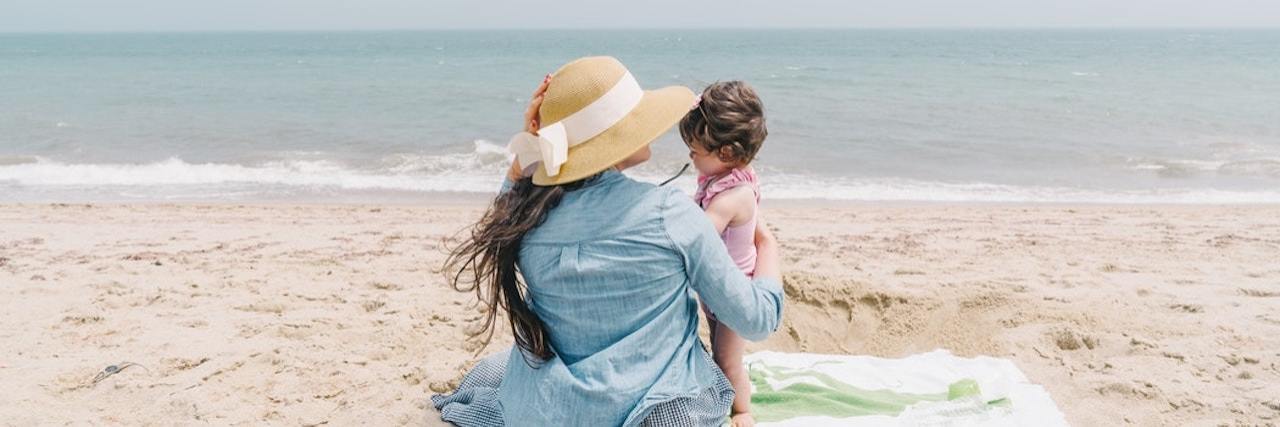My entrance into motherhood was like reentering a battlefield, only my battlefield existed inside my home.
I am a survivor of prolonged childhood abuse and even though I worked extensively on my own recovery before choosing to have children, I was blindsided by the triggers that arose around providing care for and with my children. I suffered physically and mentally with no understanding as to why being around and caring for my children made me feel this way.
On the outside, I looked like I had it all together. I knew how to go through the motions of being Mom, even a “good” mom, but I didn’t know why I was continuously wanting to run away from my children instead of towards them. I was the only one that knew how holding my children, nurturing them, disciplining them and protecting them left me feeling ill and hollow inside.
A survivor’s need to maintain order and control will override the need for self-care because as a child, secrets had to be kept and the appearance of everything being, “normal” had to be maintained. That survivor mechanism often continues into adulthood and parenthood, and the only way to break through that belief is to prepare for what may happen, so as not to have the triggers be construed as personal faults.
I didn’t tell anyone what motherhood was really like for me. I feared being deemed “crazy” and incapable or that my children would be taken from me, like I was taken from my parents. The shame I felt because of that nearly left my children without a mother to raise them.
The ah-ha moment that helped shed my feelings of shame, hopelessness and helplessness came as I stood in a room full of women and remembered that one in four girls are abused before the age of 18. As that statistic popped in my head, so did the realization that we, the survivors, all have one thing in common: we often become parents when we grow up. With this in mind, my shame turned into determination and I was convinced there was no way I was the only one experiencing motherhood like this.
I searched relentlessly for parenting books, parenting blogs or anything that would validate what I was experiencing. But I came up empty handed every time. As a result of that, a fellow parenting survivor, Joyelle Brandt, and I decided to create the resource we both went looking for but were unable to find. I was and continue to be contacted by mothers and fathers, all survivors of childhood abuse, who identify with the triggers, emotions, challenges and successes described in our book, “Parenting with PTSD.”
As individuals enter parenthood, our culture and professionals help prepare people for nearly every aspect of parenting. This occurs under the assumption that parenting milestones and challenges will be the same for everyone. This is not the case for parenting survivors. The ripple effect of childhood trauma seeps into parenthood, leaving the parent feeling incapable of identifying when they are triggered, why they are triggered or what to do about it when it happens.
Doesn’t it make sense that even if a mother has learned to manage the effects of her childhood abuse, she may expose her to triggers not yet experienced? How can it not? Why aren’t we talking about this with adult survivors, particularly those with a plan to start their own families?
While researching, “Parenting with PTSD,” and now as someone who provides presentations and community education on the topic, I have come to realize the answers to those question. A large majority of the people and professionals in the most opportune position to increase a survivors awareness are, in fact, not aware themselves. Time after time, I have asked the crowd I’m addressing, “How many here are aware that a parenting survivors child may be the source of her depression, anxiety, and/or PTSD?” and very few hands are raised. The audience usually looks as quizzical as they used to look when I asked, “How many here have ever heard of the ACE study?”
When I begin to explain the science behind trauma and how it plays out into parenthood, people will say to me, “I never thought about this,” or, “This wasn’t a part of my training.” The truth is: we can only do better when we know better and unfortunately, parenting as a survivor of childhood abuse is the chapter left out of the plethora of parenting education books. That’s why I continue to run workshops and speak publicly about my own story as a parenting survivor with an ACE score of nine.
Without providing information on parenting with PTSD, the goal to break generational cycles of abuse will continue to fall short. I can, without a doubt, say that connecting and learning from other parenting survivors and understanding that PTSD is not restricted to only war veterans has changed my life and given me the gift of being the mom I want to and can be.
Through sharing my own narrative, learning ACEs science and raising awareness on the most common triggers and reactions of parenting survivors, that I have found the courage and strength to help other survivors out there.
Unsplash via Jonathan Gallegos

